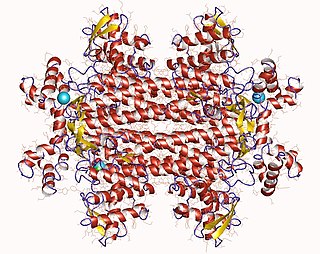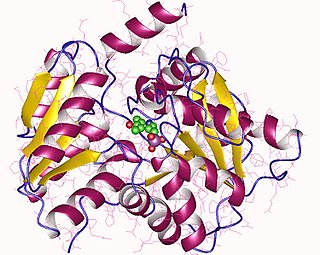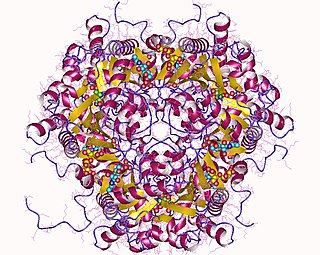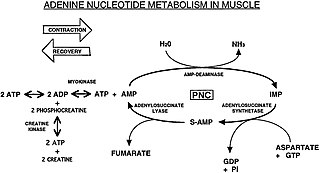| ADP deaminase | |||||||||
|---|---|---|---|---|---|---|---|---|---|
| Identifiers | |||||||||
| EC no. | 3.5.4.7 | ||||||||
| CAS no. | 9027-79-6 | ||||||||
| Databases | |||||||||
| IntEnz | IntEnz view | ||||||||
| BRENDA | BRENDA entry | ||||||||
| ExPASy | NiceZyme view | ||||||||
| KEGG | KEGG entry | ||||||||
| MetaCyc | metabolic pathway | ||||||||
| PRIAM | profile | ||||||||
| PDB structures | RCSB PDB PDBe PDBsum | ||||||||
| Gene Ontology | AmiGO / QuickGO | ||||||||
| |||||||||
In enzymology, an ADP deaminase (EC 3.5.4.7) is an enzyme that catalyzes the chemical reaction
- ADP + H2O IDP + NH3
Thus, the two substrates of this enzyme are ADP and H2O, whereas its two products are IDP and NH3.
This enzyme belongs to the family of hydrolases, those acting on carbon-nitrogen bonds other than peptide bonds, specifically in cyclic amidines. The systematic name of this enzyme class is ADP aminohydrolase. Other names in common use include adenosine diphosphate deaminase, and adenosinepyrophosphate deaminase.







